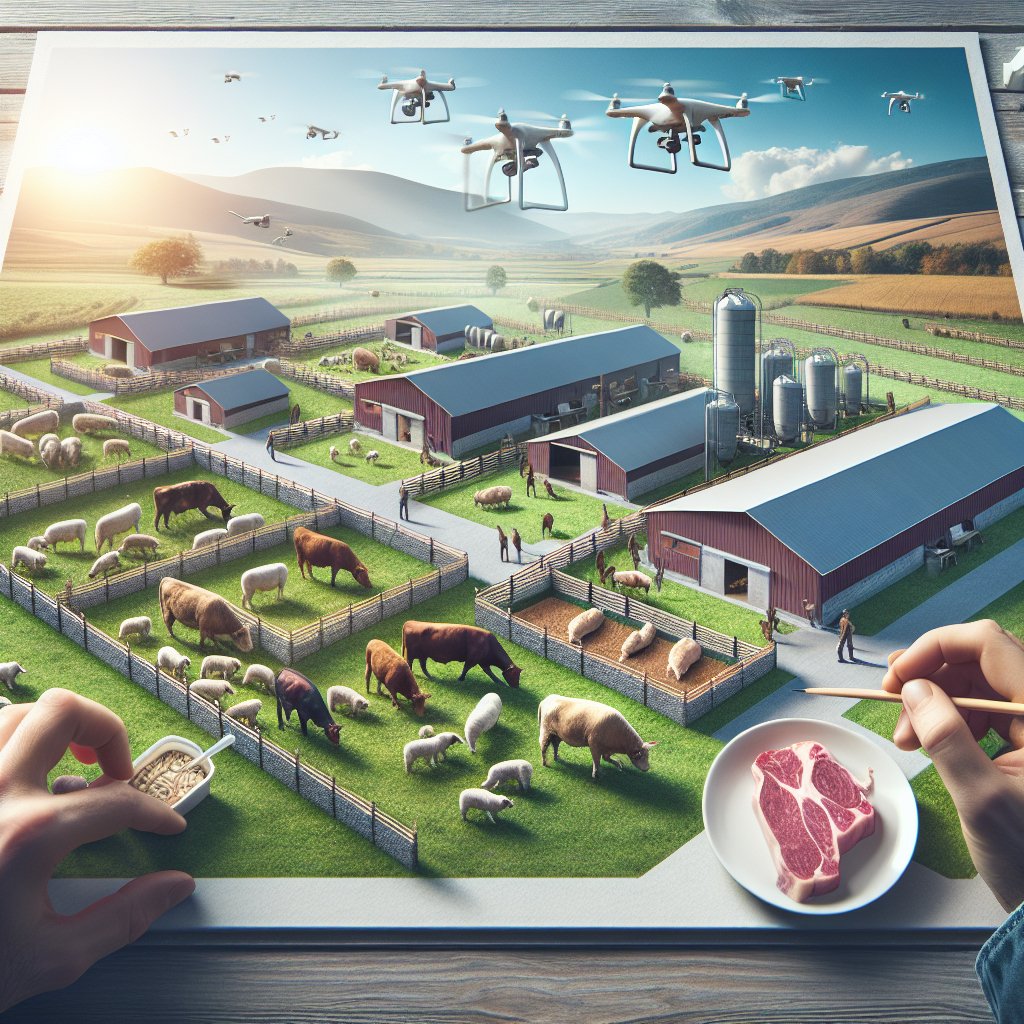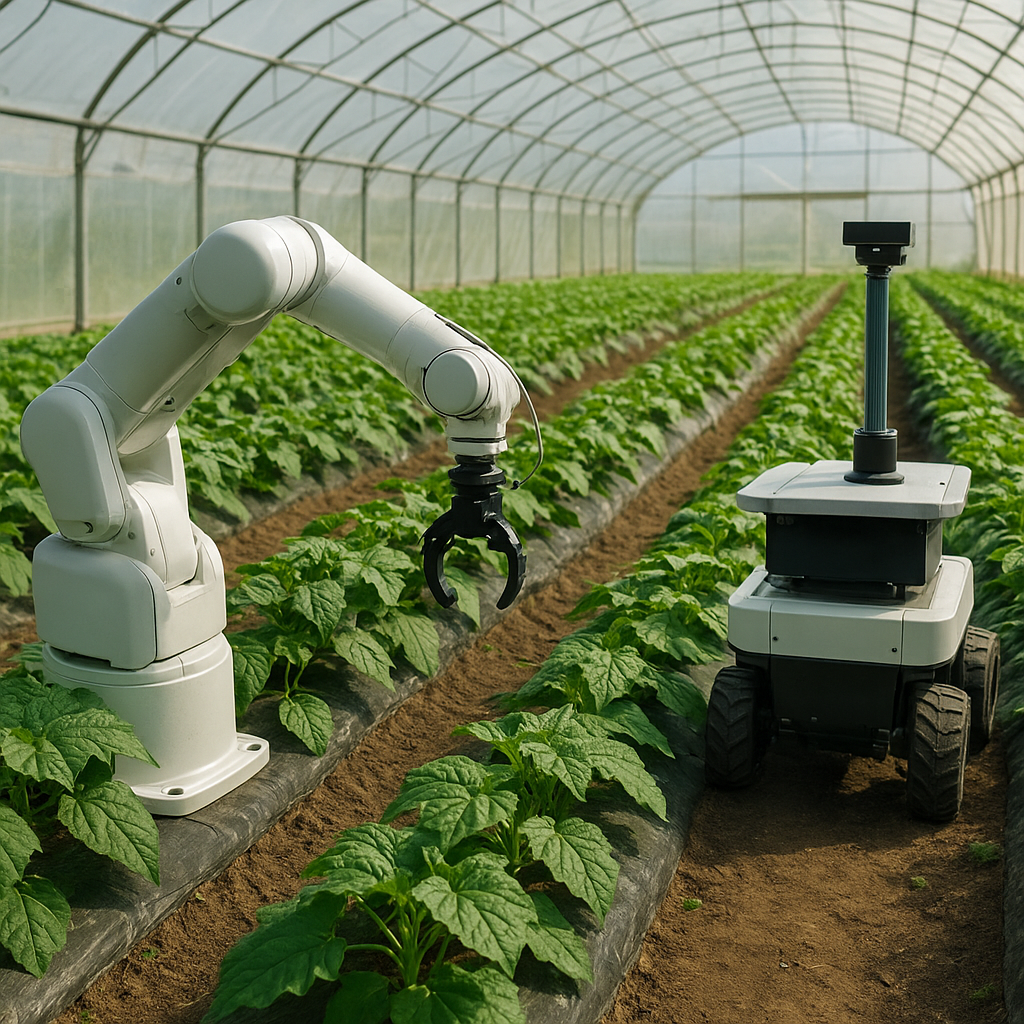Managing livestock efficiently on small farms is a crucial aspect of sustainable agriculture. With limited resources and space, small-scale farmers must employ strategic practices to ensure the health and productivity of their animals while maintaining environmental and economic sustainability. This article explores various methods and strategies that can help small farm owners optimize their livestock management.
Understanding the Basics of Livestock Management
Effective livestock management begins with a solid understanding of the basic needs and behaviors of the animals. This includes knowledge of their nutritional requirements, health care, breeding practices, and housing needs. Each species has unique characteristics and demands, and recognizing these is essential for creating a conducive environment for their growth and productivity.
Nutritional Requirements: Proper nutrition is fundamental to livestock health and productivity. Small farm owners should focus on providing a balanced diet that meets the specific needs of their animals. This involves understanding the dietary requirements of different species and age groups, as well as the nutritional value of available feed resources. Utilizing locally available feed ingredients can help reduce costs while ensuring that animals receive the necessary nutrients.
Health Care: Regular health checks and vaccinations are vital to prevent diseases and maintain the well-being of livestock. Small farm owners should establish a health care routine that includes regular veterinary visits, parasite control, and monitoring for signs of illness. Early detection and treatment of health issues can prevent the spread of diseases and reduce mortality rates.
Breeding Practices: Efficient breeding practices are essential for maintaining a productive livestock population. Small farm owners should focus on selecting animals with desirable traits for breeding, such as disease resistance, high fertility, and good growth rates. Implementing controlled breeding programs can help improve the genetic quality of the herd and increase overall productivity.
Housing and Shelter: Providing adequate housing and shelter is crucial for protecting livestock from harsh weather conditions and predators. Small farm owners should design housing facilities that offer sufficient space, ventilation, and protection for their animals. Proper housing not only ensures the comfort and safety of livestock but also contributes to their overall health and productivity.
Implementing Sustainable Livestock Management Practices
Sustainability is a key consideration in modern livestock management. Small farm owners can adopt various practices to enhance the sustainability of their operations, reduce environmental impact, and improve economic viability.
Rotational Grazing: Rotational grazing is an effective strategy for managing pasture resources and improving soil health. By rotating livestock between different grazing areas, farmers can prevent overgrazing, promote pasture regrowth, and enhance biodiversity. This practice also helps distribute manure evenly across the pasture, improving soil fertility and reducing the need for chemical fertilizers.
Integrated Pest Management: Integrated pest management (IPM) involves using a combination of biological, cultural, and mechanical methods to control pests and diseases. Small farm owners can implement IPM strategies to reduce reliance on chemical pesticides, minimize environmental impact, and promote the health of their livestock. This includes practices such as introducing natural predators, using resistant breeds, and maintaining proper sanitation.
Water Management: Efficient water management is essential for ensuring the health and productivity of livestock. Small farm owners should implement practices that conserve water resources and prevent contamination. This includes providing clean and adequate water supply, implementing rainwater harvesting systems, and managing waste to prevent water pollution.
Waste Management: Proper waste management is crucial for minimizing environmental impact and maintaining farm hygiene. Small farm owners should implement practices that promote the recycling and reuse of waste materials. This includes composting manure for use as fertilizer, utilizing waste as a source of energy, and implementing waste treatment systems to prevent pollution.
Leveraging Technology for Improved Livestock Management
Advancements in technology offer new opportunities for small farm owners to enhance their livestock management practices. By leveraging technology, farmers can improve efficiency, reduce labor costs, and make informed decisions.
Precision Livestock Farming: Precision livestock farming involves using technology to monitor and manage livestock health, behavior, and productivity. This includes the use of sensors, cameras, and data analytics to track animal movements, monitor health parameters, and optimize feeding practices. By collecting and analyzing data, small farm owners can make informed decisions that improve animal welfare and farm profitability.
Automated Feeding Systems: Automated feeding systems can help small farm owners optimize feed distribution and reduce labor costs. These systems use sensors and software to deliver precise amounts of feed to each animal, based on their nutritional needs and growth stage. This not only ensures that animals receive the right amount of nutrients but also reduces feed wastage and costs.
Mobile Applications: Mobile applications offer a convenient way for small farm owners to manage their livestock operations. These apps provide tools for record-keeping, health monitoring, and financial management, allowing farmers to access important information and make decisions on the go. By using mobile applications, small farm owners can streamline their operations and improve efficiency.
Online Resources and Training: The internet offers a wealth of resources and training opportunities for small farm owners looking to improve their livestock management skills. Online courses, webinars, and forums provide valuable information on best practices, emerging trends, and innovative technologies. By staying informed and continuously learning, small farm owners can enhance their knowledge and improve their operations.
Conclusion
Efficient livestock management on small farms requires a combination of knowledge, strategic planning, and the adoption of sustainable practices. By understanding the basic needs of their animals, implementing sustainable management practices, and leveraging technology, small farm owners can optimize their operations and ensure the health and productivity of their livestock. As the agricultural landscape continues to evolve, small farm owners must remain adaptable and open to new ideas and innovations to succeed in the ever-changing world of agriculture.



